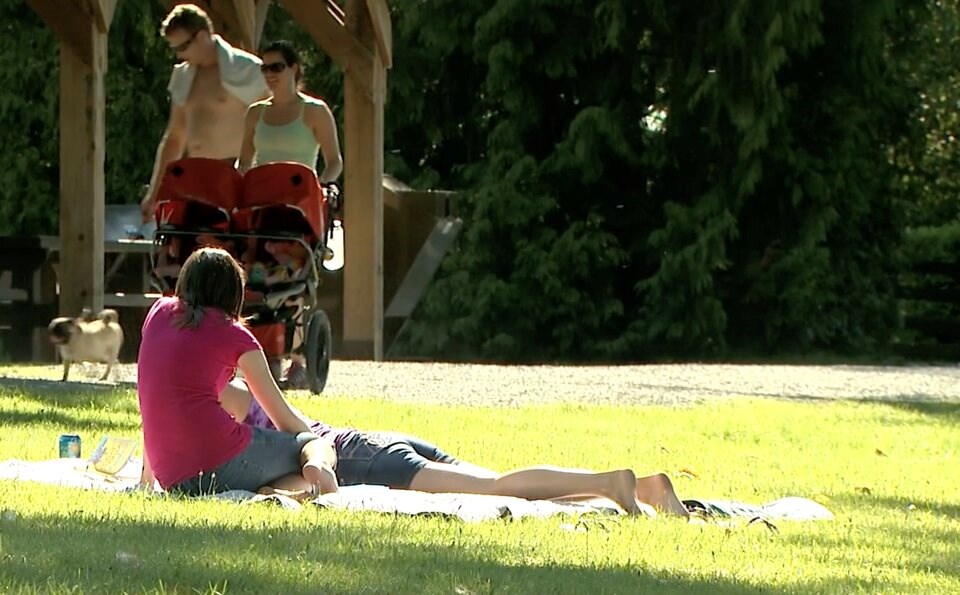British Columbia’s biggest two health authorities are calling on Metro Vancouver to reject plans that would allow the consumption of alcohol in six regional parks.
This week, Metro Vancouver’s board of directors is slated to hear a staff proposal that would roll out a pilot project allowing the public to drink alcohol in six designated parks between June 28 and Oct. 14, 2024.
The pilot would allow the “responsible” consumption of alcohol during park hours in designated areas at the following regional parks: Boundary Bay Regional Park; Brunette Fraser Regional Greenway; Campbell Valley Regional Park; Capilano River Regional Park; Derby Reach Regional Park; and Iona Beach Regional Park.
The parks offer a wide range of terrain and activities, from beaches and wetlands on the edges of Richmond, Delta and Surrey, to wooded trails and picnic areas on Vancouver's North Shore.
In recent years, several municipalities across the Metro region — including Burnaby, Coquitlam, Delta, Langley, Maple Ridge, New Westminster, the City of North Vancouver, Port Coquitlam, Port Moody, Richmond and Vancouver — have moved to normalize the consumption of alcohol in city parks, a process that kicked off in 2020 when the COVID-19 pandemic led to a series of restrictions on indoor gatherings.
According to a Metro Vancouver staff report, the pilot program will help the regional body collect data on its successes and shortcomings, and help establish a “longer-term public policy related to responsible alcohol consumption.”
“The Pilot Program to Permit Alcohol Consumption in Regional Parks will provide opportunities for visitors to connect with friends and families in places other than bars and restaurants and private homes, increasing opportunities for more people to connect with nature,” says the report.
But in a letter from Fraser Health earlier this month, three medical health officers “strongly cautioned against” allowing the public to drink in regional parks.
The letter, dated March 5, cited a rise in alcohol consumption in B.C. over the past decade, and an associated economic burden to governments and society, with “alcohol related issues” costing the province $2.8 billion annually.
“Alcohol causes more health harms than any other substance in B.C., surpassing tobacco and opioids, and is responsible for more hospitalizations, emergency room visits, and paramedic services than any other substance,” reads the letter.
The medical health officers raised concerns around “enabling underage drinking” and encroaching on portions of the public who prefer alcohol-free spaces.
They also cited statistics showing alcohol and drugs contributed to 38 per cent of drowning deaths in B.C. between 2012 and 2020, and that “the Fraser River had the most deaths of any river/creek in B.C.” — a particular concern because several of the parks proposed in the pilot project border the river’s banks.
“I recommend against permitting alcohol consumption in regional parks…” added Vancouver Coastal Health medical health officer Michael Schwandt in his own letter.
Schwandt wrote “alcohol is a leading global cause of preventable death” in the health region and beyond. He pointed to another data set showing “per capital alcohol consumption in 2022 averaged 9.18 standard drinks per week, far in excess of Canada’s Guidance on alcohol and health.”
Metro Vancouver's board is slated to vote on the pilot project on Friday.



